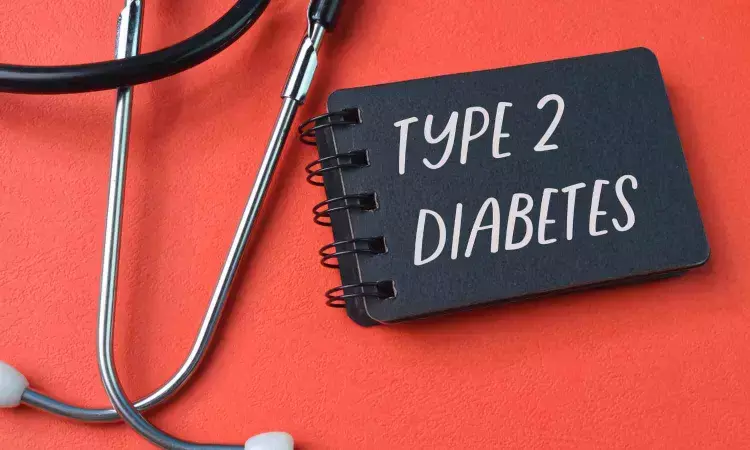- Home
- Medical news & Guidelines
- Anesthesiology
- Cardiology and CTVS
- Critical Care
- Dentistry
- Dermatology
- Diabetes and Endocrinology
- ENT
- Gastroenterology
- Medicine
- Nephrology
- Neurology
- Obstretics-Gynaecology
- Oncology
- Ophthalmology
- Orthopaedics
- Pediatrics-Neonatology
- Psychiatry
- Pulmonology
- Radiology
- Surgery
- Urology
- Laboratory Medicine
- Diet
- Nursing
- Paramedical
- Physiotherapy
- Health news
- Fact Check
- Bone Health Fact Check
- Brain Health Fact Check
- Cancer Related Fact Check
- Child Care Fact Check
- Dental and oral health fact check
- Diabetes and metabolic health fact check
- Diet and Nutrition Fact Check
- Eye and ENT Care Fact Check
- Fitness fact check
- Gut health fact check
- Heart health fact check
- Kidney health fact check
- Medical education fact check
- Men's health fact check
- Respiratory fact check
- Skin and hair care fact check
- Vaccine and Immunization fact check
- Women's health fact check
- AYUSH
- State News
- Andaman and Nicobar Islands
- Andhra Pradesh
- Arunachal Pradesh
- Assam
- Bihar
- Chandigarh
- Chattisgarh
- Dadra and Nagar Haveli
- Daman and Diu
- Delhi
- Goa
- Gujarat
- Haryana
- Himachal Pradesh
- Jammu & Kashmir
- Jharkhand
- Karnataka
- Kerala
- Ladakh
- Lakshadweep
- Madhya Pradesh
- Maharashtra
- Manipur
- Meghalaya
- Mizoram
- Nagaland
- Odisha
- Puducherry
- Punjab
- Rajasthan
- Sikkim
- Tamil Nadu
- Telangana
- Tripura
- Uttar Pradesh
- Uttrakhand
- West Bengal
- Medical Education
- Industry
C-Peptide Index may Predict endogenous insulin secretory capacity under non-fasting conditions: Study

Researchers have found that the C-peptide index (CPI) at 2 hours post-meal is a significant indicator of endogenous insulin secretory capacity in patients with type 2 diabetes, according to a study published in Diabetes Obesity & Metabolism. This measure can help predict the likelihood of patients being able to withdraw from insulin therapy, providing valuable insights for personalized diabetes management. The study was conducted by Yuichiro Iwamoto and colleagues.
Type 2 diabetes is a chronic metabolic disorder characterized by insulin resistance and pancreatic beta-cell dysfunction. Managing the condition often involves insulin therapy; however, the ability to withdraw from insulin therapy can improve the quality of life for patients. Identifying reliable indicators for withdrawal can guide treatment plans and optimize patient outcomes.
The study was a single-center retrospective analysis involving 147 patients with type 2 diabetes admitted to a hospital. Participants were divided into a withdrawal group (n = 72) and a non-withdrawal group (n = 75) based on whether they were able to withdraw from insulin therapy at discharge. Researchers evaluated the correlation between CPI at 2 hours post-meal and diabetes-related parameters. Machine learning was employed to create clinical models to predict the possibility of withdrawal from insulin therapy.
The key findings of the study were:
• The CPI at 2 hours post-meal was significantly higher in the withdrawal group (2.97 ± 2.07) compared to the non-withdrawal group (1.93 ± 1.28) with a p-value of <0.001.
• This suggests that a higher post-meal CPI is associated with a greater likelihood of withdrawing from insulin therapy.
• CPI at 2 hours post-meal was an independent predictor of withdrawal from insulin therapy.
• It was also found to be a better predictor than fasting CPI.
• Six factors associated with insulin therapy withdrawal (age, duration of diabetes, creatinine, alanine aminotransferase, insulin therapy until hospitalization, and CPI at 2 hours post-meal) were used to create two clinical models using machine learning.
• The accuracy of the generated clinical models ranged from 78.3% to 82.6%.
The study concludes that the CPI at 2 hours post-meal is a clinically useful measure of endogenous insulin secretory capacity under non-fasting conditions. This measure can serve as a valuable tool for predicting the possibility of withdrawal from insulin therapy in patients with type 2 diabetes. This finding can help tailor treatment plans to individual patients' needs, potentially improving their overall quality of life.
Reference:
Iwamoto, Y., Kimura, T., Shimoda, M., Morimoto, Y., Watanabe, Y., Itoh, T., Sasaki, T., Mori, S., Kubo, M., Takenouchi, H., Dan, K., Iwamoto, H., Sanada, J., Fushimi, Y., Katakura, Y., Nakanishi, S., Mune, T., Kaku, K., & Kaneto, H. (2024). C‐peptide index at 2 h post‐meal is a useful predictor of endogenous insulin secretory capacity and withdrawal from insulin therapy in subjects with type 2 diabetes. Diabetes, Obesity & Metabolism. https://doi.org/10.1111/dom.15595
Dr Riya Dave has completed dentistry from Gujarat University in 2022. She is a dentist and accomplished medical and scientific writer known for her commitment to bridging the gap between clinical expertise and accessible healthcare information. She has been actively involved in writing blogs related to health and wellness.
Dr Kamal Kant Kohli-MBBS, DTCD- a chest specialist with more than 30 years of practice and a flair for writing clinical articles, Dr Kamal Kant Kohli joined Medical Dialogues as a Chief Editor of Medical News. Besides writing articles, as an editor, he proofreads and verifies all the medical content published on Medical Dialogues including those coming from journals, studies,medical conferences,guidelines etc. Email: drkohli@medicaldialogues.in. Contact no. 011-43720751


